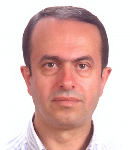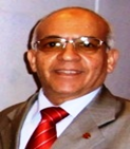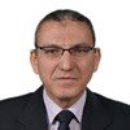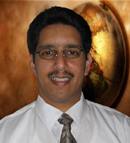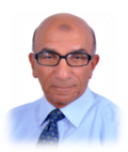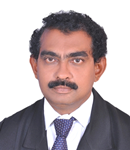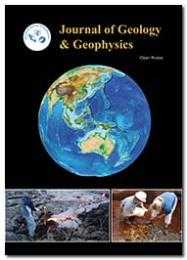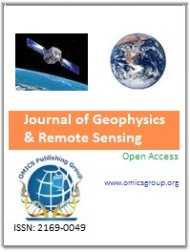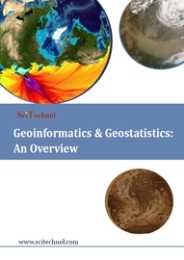Theme: Exploring Research Methodologies of Geology and Geosciences
Geology 2016
OMICS International invites all the participants across the globe to attend the 2nd International Conference on Geology which is going to be held at Dubai, UAE during April 21-22, 2016 with the theme of “Exploring Research Methodologies of Geology and Geosciences”.
Geology 2016 aims to place a forum with the foremost academic scientists, geologists, young researchers from all over the world. The conference will be the leading forum for all recent advancements in geology and geosciences. The important features of geology conferences are well organized workshops, events and symposia, poster presentations and world class exhibits, panel discussions & interactive sessions, collaborative research opportunities.
Track 1: Environmental Geology
Environmental geology is an applied science concerned with the practical application of the principles of geology in the solving of environmental problems. It includes Hydrogeology, Environmental Mineralogy, Hydro geochemistry, Soil Mechanics and so on. The study of Environmental Science deals with the study of environment with the integration of physical science. Environmental Geology involves geologic hazards, natural resources, and topical issues of concern to society such as climate change and provides sound advice about how humanity can live responsibly and sustainably on Earth.
The fundamentals concepts of environmental geology are Human population growth, Sustainability, Earth as a system, Hazardous earth processes etc. Research on environmental geology emphases on the physical and chemical processes occurring at or near the Earth’s surface impacting by human activities. Hydrogeology is important now a days as some parts of the world are blessed with frequent rainfall and plentiful surface water resources, but most countries need to use the water that is stored underground to supplement their needs. Environmental geology applies geologic information to the solution, prediction and study of geologic problems such as Earth materials, Natural hazards, Landscape evaluation, Environmental impact analysis and remediation.
Geological conferences aim to inspire the young researchers, students with the renowned speakers from 25 countries.
Related Geology Conferences| Geology Events: International Conference on Pollution Control and Sustainable Environment Conference, April 25-26, 2016 Dubai, UAE; 2nd International Conference on Green Energy and Expo, Nov 28-30, 2016 Chicago, USA; 3rd World Congress and Expo on Recycling, Oct 06-07, 2016 Atlanta, USA; 2nd World Congress and Expo on Recycling, July 25-27, 2016 Berlin, Germany; 5th International Conference on Earth Science & Climate Change Conference, July 25-27, 2016 Bangkok, Thailand; 18th International Conference on Environmental and Geological Systems, June 13 - 14, 2016, Venice, Italy; 7th International Conference on Environmental and Engineering Geophysics, June 24-27, 2016, China; 3rd Annual International Conference on Earth and Environmental Sciences, 6th - 9th June 2016, Athens, Greece; 7th International Conference on Environmental Science and Development, February 1-3, 2016, Rome, Italy; 5th International Conference on Clean and Green Energy, February 1-3, 2016, Rome, Italy
Track 2: Petroleum Geology
Petroleum geology is a branch of Geoscience which deals with the study of origin, occurrence, movement, accumulation, and exploration of hydrocarbon fuels. It combines the exact set of geological disciplines that are useful to the search for hydrocarbons (oil exploration). Oil and gas deposits assessed by reservoir engineering and it also play a central role in field development planning, recommending appropriate and cost effective reservoir depletion schemes such as water flooding or gas injection to maximize hydrocarbon recovery.
Petroleum geology refers to the specific set of geological disciplines that are applied to the search for hydrocarbons during oil exploration. Oil and natural gas are produced from the remains of organisms that were deposited in fine-grained sedimentary rocks along with the mineral grains of those rocks. As these source rocks are buried by overlying sediments, the organic matter is converted to oil and natural gas, first through bacterial processes and later by high temperatures associated with burial to several thousands of feet. The oil and gas are then expelled from the source rocks into adjacent porous reservoir rocks. Because the oil and gas are less dense than the water that saturates the pores of the reservoir rocks, they move upward through the pore system until they encounter impermeable rocks. At this point, the oil and gas accumulate and an oil or gas field is formed.
The aim of geology meetings is to bring together researchers in all aspects of Geology and related disciplines.
Related Geology Conferences| Geology Events:
World Congress on Petroleum and Refinery Conference, July 21-23, 2016 Brisbane, Australia; International Conference on Geophysics, September 29-30, 2016 Toronto, Canada; 2nd International Conference and Expo on Oil and Gas, Nov 2-3, 2016 Istanbul, Turkey; 2nd International Conference on Geology, April 21-22, 2016 Dubai, UAE; Global Summit on Geosciences, October 06-07, 2016 Orlando, USA; 18th International Conference on Petroleum and Natural Gas Engineering, August 22 - 23, 2016, Paris, France; Oil and Gas safety Conference and Exhibition, November 29-30, 2016, Houston, USA; ; Louisiana Oil & Gas Association Annual Meeting, January 27-29, 2016, Louisiana, USA; 15th European Conference on the Mathematics of Oil Recovery, 29 August - 1 September 2016, Amsterdam, Netherlands; 5th Oil and Gas Africa International Trade Exhibition, 12 - 14 May, 2016, Kenya, Africa
Track 3: Geology and Mineral Resources
Mineral Resources can be defined as the concentration of material of economic interest in or on the earth’s crust and those are potentially valuable, and for which reasonable prospects exist for eventual economic extraction. These are the natural resources which cannot be renewed. They are present in the organisms as an organic and inorganic molecule and ions. Mineralogy focuses on describing minerals within their geologic context. It presents the important traditional content of mineralogy including crystallography, chemical bonding, controls on mineral structure, mineral stability, and crystal growth to provide a foundation that enables students to understand the nature and occurrence of minerals. Crystal chemistry is a part of mineralogy that deals with how the chemical composition of a mineral relates to its crystal structure.
Like other natural resources, mineral deposits are unevenly distributed around on the Earth. Finding and exploiting mineral resources requires the application of the principles of geology. Some minerals are used as they are found in the ground, i.e. they require no further processing or very little processing. For example gemstones, sand, gravel, and salt (halite). Most minerals must be processed before they are used.
The aim of geology summit to endorse, inspire and influence more support, understanding and collaboration among scientists working in the field of Geology.
Related Geology Conferences| Geology Events: International Conference on Mining and Metallurgy, June 27-29, 2016 Cape Town, South Africa; 2nd International Conference on Geology, April 21-22, 2016 Dubai, UAE; Global Summit on Geosciences, October 06-07, 2016 Miami, USA; 2nd Global Geologists Annual Meeting, July 11-12, 2016 Brisbane, Australia; International Conference on Coastal Zone Management, May 16-18, 2016 Osaka, Japan; 18th International Conference on Mineral Resources and Geology, February 25 - 26, 2016, London, UK; International Mineral Processing Congress, September 11-15, 2016 Québec, Canada; International Conference on Polymer and Mineral Resources Engineering, 26-27 January 2016, Singapore; 2nd European Mineralogical Conference, 11-15 September, 2016, Rimini, Italy; 7th International Conference & Exhibition on Mass Mining, 9–11 May 2016, Sydney, Australia
Track 4: Exploration Geophysics
Exploration geophysics is an applied branch of geophysics, which deals with the physical methods like seismic, gravitational, magnetic, electrical and electromagnetic at the surface of the Earth to measure the physical properties of the subsurface, along with the differences in those properties. Geophysical methods of exploration are means to collect geophysical data that can be used to prospect directly for economic minerals.
Geophysical methods for oil and gas exploration and mineral prospecting include almost all the major geophysical methods ever invented, oil and gas exploration is dominated by seismic reflection method, in both land and marine settings. Geophysical exploration may be used with advantage to detect margins between different elements of the subsoil as these procedures are based on the fact that the gravitational, magnetic, electrical, radioactive or elastic properties of the different elements of the subsoil may be different.
Geology meetings will make an ideal platform for the academicians, geologists and research scientists to share views and experiences.
Related Geology Conferences| Geology Events: 2nd International Conference and Expo on Oil and Gas, Nov 2-3, 2016 Istanbul, Turkey; International Conference on Geophysics, September 29-October30, 2016 Toronto, Canada; World Congress on Petroleum and Refinery Conference, July 21-23, 2016 Brisbane, Australia; International Conference on Coastal Zone Management, May 16-18, 2016 Osaka, Japan; 5th International Conference on Earth Science & Climate Change Conference, July 25-27, 2016 Bangkok, Thailand; 18th International Conference on Geology and Geophysics, February 15 - 16, 2016, Barcelona, Spain; 1st EAGE Conference on Geophysics for Mineral Exploration and Mining, 4 - 8 September 2016, Barcelona, Spain; 18th International Conference on Geology, Geophysics and Geochemistry, May 16 - 17, 2016, Paris, France; Landscape Conference, June 29-July 1, 2016, Cracow, Poland; 7th International Conference on Applied Geophysics, 14–15 January 2016, Bangkok, Thailand
Track 5: Engineering Geology
Engineering geology is the application of the geological sciences to engineering study for the purpose of assuring that the geological factors regarding the location, design, construction, operation and maintenance of engineering works are recognized and accounted for. It is mainly concerned with the application of geology to civil and mining engineering practice. The purpose is to ensure that geological factors affecting the planning, design, construction and maintenance of engineering works and the development of groundwater resources are recognized, adequately interpreted and presented for use in engineering practice.
Engineering geology is the application of geological knowledge in engineering works. It has wide applications in various engineering fields especially in urban planning and expansion. Site investigation for major structures such as dams, factories, and heavy buildings is one of the main parts of engineering applications. Others include earth material characterization, exploration and assessment of construction materials and assessment of difficult grounds such as sabkha, expansive and collapsible soils. Engineering geology research has focused on stability of highway cuts, mine waste embankment stability and design, landslide hazards, watershed and urban hydrology and geochemistry affected by acid mine drainage, and properties of soil and rock material as related to their engineering behavior.
Geological conferences will bring together an international community of experts to discuss the on “Exploring Research Methodologies of Geology and Geosciences”
Related Geology Conferences| Geology Events: World Congress on GIS and Remote Sensing Conference, May 16-17, 2016 San Antonio, USA; International Conference on Mining and Metallurgy, June 27-29, 2016 Cape Town, South Africa; 2nd International Conference on Geology, April 21-22, 2016 Dubai, UAE; 2nd Global Geologists Annual Meeting, July 11-12, 2016 Brisbane, Australia; International Conference on Coastal Zone Management, May 16-18, 2016 Osaka, Japan; 18th International Conference on Geosciences and Geological Engineering, January 18 - 19, 2016, London, United Kingdom; 18th International Conference on Engineering Geology, May 2 - 3, 2016, Rome, Italy; 3rd International Conference on Geological and Civil Engineering, 12-13 January 2016, Penang, Malaysia; 18th International Conference on Geological Engineering, January 25-26, 2016, Istanbul, Turkey; 18th International Conference on Concrete, Structural and Geotechnical Engineering, March 30 - 31, 2016, Prague, Czech Republic
Track 6: Sedimentology and Coastal Process
Sedimentology is a branch of geoscience that deals with sedimentary process, sediments and sedimentary environments. Sedimentary structures are those structures formed during sediment deposition. Cross-Bedding is a feature that occurs at various scales, and is observed in conglomerates and sandstones. It reflects the transport of gravel and sand by currents that flow over the sediment surface reservoir sedimentation is a complex process that varies with watershed sediment production, rate of transportation, and mode of deposition.
The seafloor locations reach from inshore shallow sites to offshore coastal, continental shelf and slope and ocean basin deep sea sites. The coastal zone is that part of the land surface influenced by marine processes. It extends from the landward limit of tides, waves, and wind-blown coastal dunes, and seaward to the point at which waves interact significantly with the seabed. The coastal zone is a dynamic part of the Earth's surface where both marine and atmospheric processes produce rocky coasts, as well as beaches and dunes, barriers and tidal inlets, and shape deltas.
The primary goal of geology meetings is to promote the research and development in geology and allied fields.
Related Geology Conferences| Geology Events: International Conference on Coastal Zone Management, May 16-18, 2016 Osaka, Japan; 4th International Conference on Oceanography and Marine Biology Conference, July 18-20, 2016 Brisbane, Australia; 2nd World Congress and Expo on Recycling, July 25-27, 2016 Berlin, Germany; 2nd International Conference on Green Energy and Expo, Nov 28-30, 2016 Chicago, USA; 2nd International Conference on Geology, April 21-22, 2016 Dubai, UAE; 18th International Conference on Coastal and Ocean Engineering, Zurich, Switzerland, January 12 - 13, 2016, Zurich, Switzerland; 18th International Conference on Physical Coastal Processes Management and Engineering, April 11 - 12, 2016, Venice, Italy; International Coastal Symposium, 6 – 11 March 2016, Sydney, Australia; 18th International Conference on Water Resources, Coastal and Ocean Engineering, February 11 - 12, 2016, Kuala Lumpur, Malaysia; 18th International Conference on Geological Engineering, January 25-26, 2016, Istanbul, Turkey
Track 7: Structural Geology
Structural Geology is a branch of geology that deals with the form, arrangement, and internal structure of rocks is also called also geotectonic geology. Structural Geology, Tectonics and Geodynamics form a coherent and interdependent group of sub-disciplines which is the study of the physical forms and relations of rocks which result mainly from deformation by earth forces.
Researchers in structural geology have integrated field-based analyses, laboratory work on rock deformation, fluid-rock interactions, metamorphic reactions, continuum and fracture mechanics, geochemistry, geochronology, isotope geochemistry, and a range of other disciplines, across vast ranges of time and space to develop new ways to examine and understand our planet. Plate tectonics developed as a unifying theory of the solid Earth from observations of the ocean floors where deformation, seismicity, and volcanism are localized at boundaries between rigid plates.
Geological conferences will make an ideal platform for the academicians, geologists and research scientists to share views and experiences.
Related Geology Conferences| Geology Events: 2nd International Conference on Geology, April 21-22, 2016 Dubai, UAE; 5th International Conference on Earth Science and Climate Change Conference, July 25-27, 2016 Bangkok, Thailand; Global Summit on Geosciences, October 06-07, 2016 Miami, USA; International Conference on Geophysics, September 29-October 1, 2016 Vancouver, Canada; 4th International Conference on Oceanography and Marine Biology Conference, July 18-20, 2016 Brisbane, Australia; 18th International Conference on Structural Geology and Tectonics, Lagos, Nigeria, December 1 - 2, 2016, Lagos, Nigeria; International Symposium on Geodynamics and Earth Tides 2016, June 5-9, 2016, Trieste, Italy; Geotechnical and Structural Engineering Congress, February 14-17, 2016, Phoenix, United States; Landscape Conference, June 29-July 1, 2016, Cracow, Poland; 3rd International Conference on Transportation Geotechnics, September 4-7, 2016, Guimarães, Portugal
Track 8: Mining Geology
Mining is the process in which extraction of valuable minerals or other geological materials from the earth takes place which forms the mineralized package of economic interest to the miner. Mineral exploration is the exploration and development are investigative activities prior to mining and it focuses on projects which search for concentrations of ore, or minerals, for mining purposes. A near accurate estimation on the volume of mineral deposits is very important because mineral exploration is a capital intensive operation.
Mineral exploration focuses on developments which search for concentrations of ore, or minerals, for mining purposes. Exploration and mining activities provide opportunities for employment, diversification of regional economies, and the development of regional services and infrastructure. Drilling is used to obtain very detailed information about rock types, mineral content, rock fabric and the relationships between rock layers close to the surface and at depth. Drilling is only used in areas that have been selected as targets from geological, geophysical and/or geochemical methods.
The main aim of geology summit is to offer opportunities to share their research through the conference podium with the professionals from all the over the world.
Related Geology Conferences| Geology Events: International Conference on Mining and Metallurgy, June 27-29, 2016 Cape Town, South Africa; 5th International Conference on Earth Science and Climate Change Conference, July 25-27, 2016 Bangkok, Thailand; Global Summit on Geosciences, October 06-07, 2016 Miami, USA; International Conference on Coastal Zone Management, May 16-18, 2016 Osaka, Japan; 2nd Global Geologists Annual Meeting, July 11-12, 2016 Brisbane, Australia; International Mineral Processing Congress, September 11-15, 2016 Québec, Canada; International Conference on Polymer and Mineral Resources Engineering, 26-27 January 2016, Singapore; 2nd European Mineralogical Conference, 11-15 September, 2016, Rimini, Italy; 18th International Conference on Mineral Resources and Geology, February 25 - 26, 2016, London, UK; 7th International Conference & Exhibition on Mass Mining, 9–11 May 2016, Sydney, Australia
Track 9: Geology and Civil Engineering
The value of geology in Mining has long been known but its use in Civil Engineering has been recognized only in comparatively recent years. Geology provides a systematic knowledge of construction material, its occurrence, composition, durability and other properties. Example of such construction materials is building stones, road metal, clay, limestone and laterite. The knowledge of the geological work of natural agencies such as water, wind, ice and earthquakes helps in planning and carrying out major civil engineering works. For example the knowledge of erosion, transportation and deposition helps greatly in solving the expensive problems of river control, coastal and harbor work and soil conservation.
Geological investigation in engineering construction is used to build Tunnels, dams and bridges. Geology helps greatly in interpreting the drilling data. In tunneling, constructing roads, canals, docks and in determining the stability of cuts and slopes, the knowledge about the nature and structure of rocks is very necessary. Before staring a major engineering project at a place, a detailed geological report which is accompanied by geological maps and sections, is prepared. Such a report helps in planning and constructing the projects. The stability of civil engineering structure is considerably increased if the geological feature like faults, joints, bedding planes, folding solution channels etc. in the rock beds are properly located and suitably treated.
Related Geology Conferences| Geology Events: World Congress on GIS and Remote Sensing Conference, August 1-3, 2016 New Orleans, USA; International Conference on Coastal Zone Management, May 16-18, 2016 Osaka, Japan; International Conference on Mining and Metallurgy, June 27-29, 2016 Cape Town, South Africa; 2nd International Conference and Expo on Oil and Gas, Nov 10-12, 2016 Istanbul, Turkey; International Conference on Geophysics, September 29-October 1, 2016 Vancouver, Canada; 3rd International Conference on Geological and Civil Engineering, 12-13 January 2016 Penang, Malaysia; 18th International Conference on Civil, Construction and Geological Engineering, February 15 - 16, 2016, Istanbul, Turkey; International Conference on Civil Engineering for Sustainable Development, 12 – 14 February 2016, Khulna, Bangladesh; 19th Southeast Asian Geotechnical Conference & 2nd Agssea Conference, 31 May – 3 June 2016, Subang Jaya, Malaysia; 18th International Conference on Geological and Civil Engineering, July 25 - 26, 2016 , Paris, France
Track 10: Physical Geology
Physical geology is the branch of geology concerned with understanding the composition of the earth and the physical changes occurring in it. It is concerned with the internal geologic processes of the earth's crust, such as tectonic activity and volcanism that constructs new landforms, as well as externally driven forces of wind, water, waves, and glacial ice that modify such landforms.
It concerns itself primarily with the origins of the present landscape but in most landscapes there are present forms that date back to previous geologic epochs or periods. It deals with the study of the physical features of the earth and the processes acting on them. It includes on the study of rocks, minerals, and sediments, their structures and formations, and their processes of origin and alteration.
Geology conferences aims is to aggregate the eminent researchers, academicians and scientists from the field of Geophysics, Geology and specific related areas to create a platform for strong exchange of the recent advancement and technologies towards Geology.
Related Geology Conferences| Geology Events:
2nd Global Geologists Annual Meeting, July 11-12, 2016 Brisbane, Australia; 2nd International Conference on Geology, April 21-22, 2016 Dubai, UAE; 5th International Conference on Earth Science and Climate Change Conference, July 25-27, 2016 Bangkok, Thailand; International Conference on Coastal Zone Management, May 16-18, 2016 Osaka, Japan; Global Summit on Geosciences, October 06-07, 2016 Orlando, USA; 18th International Conference on Petroleum and Natural Gas Engineering, August 22 - 23, 2016, Paris, France; Oil and Gas safety Conference and Exhibition, November 29-30, 2016, Houston, USA; 18th International Conference on Physical Coastal Processes Management and Engineering, April 11 - 12, 2016, Venice, Italy; International Coastal Symposium, 6 – 11 March 2016, Sydney, Australia; 3rd International Conference on Transportation Geotechnics, September 4-7, 2016, Guimarães, Portugal
Track 11: Geological Modelling
Geologic modeling is the applied science of forming computerized representations of portions of the Earth's crust based on geophysical and geological observations made on and below the Earth surface. Geologic modeling also known as Geomodelling is associated to the concept of Shared Earth Model which is a multidisciplinary, interoperable and updatable knowledge base about the subsurface. Geomodelling is generally used for the management of the natural resources and natural hazards and also for quantifying geological processes, with main applications to oil and gas fields, groundwater aquifers and ore deposits. The Geologic modeling components are Structural framework, type of the rocks, Reservoir quality, Fluid saturation, Geostatistics and Mineral Deposits.
3D visualization of geological structures is a very efficient way to create a good understanding of geological features. The purpose of the geological model is to provide input for the groundwater modeling of the area. Hence, the modeling activity will focus on the uppermost part of the sedimentary sequence containing the groundwater reservoirs. Advanced structural and stratigraphic modeling is used to construct and automate structural frameworks during interpretation.
Geology conferences aims is to aggregate the eminent researchers, academicians and scientists from the field of Geophysics, Geology and specific related areas to create a platform for strong exchange of the recent advancement and technologies towards Geology.
Related Geology Conferences| Geology Events: World Congress on GIS and Remote Sensing Conference, May 16-17, 2016 San Antonio, USA; 2nd International Conference on Geology, April 21-22, 2016 Dubai, UAE; Global Summit on Geosciences, October 06-07, 2016 Miami, USA; 2nd Global Geologists Annual Meeting, July 11-12, 2016 Brisbane, Australia; International Conference on Mining and Metallurgy, June 27-29, 2016 Cape Town, South Africa; 8th International Conference on Advanced Geographic Information Systems, Applications, and Services, April 24 - 28, 2016, Venice, Italy; 35th International Geological Congress, 27 August - 4 September 2016, Cape Town, South Africa; 18th International Conference on Concrete, Structural and Geotechnical Engineering, March 30 - 31, 2016, Prague, Czech Republic; 3rd International Conference on Geological and Civil Engineering, 12-13 January 2016, Penang, Malaysia; 18th International Conference on Geological Engineering, January 25-26, 2016, Istanbul, Turkey
Track 12: Paleontology
Paleontology is the science that deals with the fossils of animals and plants through their fossilized remains. It is the study of what fossils tell us about the ecologies of the past, about evolution, and about our place, as humans, in the world. Paleontology incorporates knowledge from biology, geology, ecology, anthropology, archaeology, and even computer science to understand the processes that have led to the origination and eventual destruction of the different types of organisms since life arose.
Paleontologists study the fossilized remains of life, including vertebrate organisms such as fishes, amphibians, reptiles, mammals, and dinosaurs (vertebrate paleontology); invertebrate organisms such as ancient snails, clams, ammonites, foraminifera, and arthropods under invertebrate paleontology and preserved plants such as leaf impressions and petrified wood The field of bimolecular paleontology covers a broad spectrum of subjects, including exceptional preservation, paleodiet and the food web or trophic levels, paleoclimate, physiology and growth.
Geological conferences will bring together an international community of experts to discuss the on “Exploring Research Methodologies of Geology and Geosciences”
Related Geology Conferences| Geology Events: 5th International Conference on Biodiversity Conference, March 10-12, 2016 Madrid, Spain; 2nd International Conference on Geology, April 21-22, 2016 Dubai, UAE; 2nd Global Geologists Annual Meeting, July 11-12, 2016 Brisbane, Australia; 5th International Conference on Earth Science and Climate Change Conference, July 25-27, 2016 Bangkok, Thailand; Annual Astronomy and Astrophysics Congress, August 8-9, 2016 Las Vegas, USA; 7th International Conference on Fossil Insects, Arthropods & Amber, April 26, 2016 - May 1, 2016, Edinburgh, United Kingdom; 9th International Meeting of the Society of Avian Paleontology and Evolution, 1 - 5 August 2016, Diamante, Argentina; 14th International Palynological Congress and the 10th International Organization of Palaeobotanists Congress, Salvador, late September - early October 2016, Brazil; XIV Annual Meeting of the European Association of Vertebrate Palaeontologists, 6 - 9 July 2016, Haarlem, The Netherlands; 17th International Bryozoology Conference, 11 - 15 April 2016, Melbourne, Australia
Track 13: Geological Consulting
The global oil and gas field equipment and services market is expected to grow with a CAGR of 6% over 2015-2020. New technology advancement for oil recovery factors and increasing deep water drilling activities because of the huge reserve of shale gas in the US and China are driving the growth of oil and gas field equipment and services market. Rest of the World is expected to remain the leading region because of presence of huge reserves in both onshore and offshore areas in the Middle East. Deep water and exploration activities in East and West Africa and geo-market activities in Nigeria, Angola, and the Gulf of Guinea are expected to drive the demand during the forecast period.
The United Arab Emirates was the world’s seventh ranked producer of crude oil and accounted for 3.7% of world crude oil and condensate production in 2012. The UAE held 97.8 billion barrels of proved crude oil reserves, or 5.9% of the world’s total reserves, as well as 6.1 trillion cubic meters of proved natural gas reserves, or 3.3% of the world’s total at the end of 2012. The UAE accounted for 1.5% of the world’s supply of natural gas and was ranked sixth in the world in terms of the volume of its proved crude oil and natural gas reserves. The economy of the UAE is projected to grow modestly in the next 5 years. The Government of Abu Dhabi plans to invest $90 billion in the next 5 years on infrastructure-related projects that would boost the economy and create jobs. Abu Dhabi also plans to continue to invest in renewable energy sources and technologies within the UAE and around the world. The UAE is expected to become a major producer of aluminum because of the merger of Dubai and Emal in one entity named Emirates Global Aluminum (EGA) in 2013. EGA would be the world’s fifth ranked aluminum company and would be valued at $15 billion.
Related Geology Conferences| Geology Events: 5th International Conference on Earth Science & Climate Change Conference, July 25-27, 2016 Bangkok, Thailand; 2nd International Conference on Geology, April 21-22, 2016 Dubai, UAE; World Congress on Petroleum and Refinery Conference, July 21-23, 2016 Brisbane, Australia; International Conference on Mining and Metallurgy, June 27-29, 2016 Cape Town, South Africa; 2nd Global Geologists Annual Meeting, July 11-12, 2016 Brisbane, Australia; 18th International Conference on Engineering Geology, May 2 - 3, 2016, Rome, Italy; 3rd International Conference on Geological and Civil Engineering, 12-13 January 2016, Penang, Malaysia; 18th International Conference on Geological Engineering, January 25-26, 2016, Istanbul, Turkey; 18th International Conference on Geology and Geophysics, February 15 - 16, 2016, Barcelona, Spain; 1st EAGE Conference on Geophysics for Mineral Exploration and Mining, 4 - 8 September 2016, Barcelona, Spain
Track 14: Entrepreneurs Investment Meet
Geology 2016 enables a distinctive platform for converting potential ideas into great business. The present conference will bring together a broad participation came from Entrepreneurs, Proposers, Investors, international financial organizations, business associations, academia and professionals in the field of Geology and its related sciences. This investment meet facilitates the most enhanced and practical business for engaging people in to constructive discussions, evaluation and execution of promising business.
OMICS International invites all the participants across the globe to attend the 2nd International Conference on Geology which is going to be held at Dubai, UAE during April 21-22, 2016 with the theme of “Exploring Research Methodologies of Geology and Geosciences”.
Meet Inspiring Speakers and Experts at our 1000+ Global Events inclusive of 300+ Conferences, 500+ Workshops and 200+ Symposiums every year on Pharma, Medicine, Clinical, Engineering and Earth & Environmental Science.
Geology is the science which is the scientific exploration of the planet Earth. This study deals with the physical nature and history of the earth which involves studying the materials that make up the earth, the landscapes and structures found on Earth as well as the processes that act upon them. It is a comprehensive topic which includes its sub disciplines like geomorphology, petroleum geology, mineralogy, volcanology, structural geology, environmental geology and engineering geology
Geology conferences aims to place a forum with the foremost academic scientists, geologists, young researchers from all over the world. The conference will be the leading forum for all recent advancements in geology and geosciences. The important features of this conference are well organized workshops, events and symposia, poster presentations and world class exhibits, panel discussions & interactive sessions, collaborative research opportunities.
Dubai is second largest of the seven Emirates that make up the United Arab Emirates has developed as a global city and business hub of the Middle East and South Asia also one of the wonders of the modern world. The UAE is considered the third richest country in the world in terms of that is $ 16.471. Per capita income, it’s considered the fourth oil producer in the world, with 2.5 million barrels a day. Dubai is considered number one financial center in the UAE and the Gulf region as a whole. In UAE, Oil and gas exports account for roughly 80 per cent of government revenues.
A huge gathering of academic scientists, geologists, young researcher, Professors, Research Scientists and students of different Universities containing Geological studies will be at Geology-2016. Also the eminent persons of different Geological Association and Societies, Directors, CEOs, Managers of different companies related to geology from all over the world will meet to share their research and knowledge at conference.
We welcome all the participants and contributors to join us at the Geology-2016 and all members of the Geology-2016 Organizing Committee look forward to meet you in Dubai, UAE.
Summary of Geology Conference
Geology conference will be the leading forum for all recent advancements in geology and geosciences. It will place a forum where the foremost academic scientists, geologists, young researchers from all over the world together where they will to exchange and share their experiences and research results. It will promote the science of geology and closely related fields of study and to promote the knowledge of the professionals of geology from all over the world. We welcome all the contributors and participants to join us at the Geology-2016, where you will be sure to have a meaningful experience with experts from around the world.
Importance & Scope
Geology is the science which is the scientific exploration of the planet Earth. This study deals with the physical nature and history of the earth which involves studying the materials that make up the earth, the landscapes and structures found on Earth as well as the processes that act upon them. It is a comprehensive topic which includes geomorphology, petroleum geology, mineralogy, volcanology, structural geology, hydrogeology, environmental & engineering geology and so on.
Geology-2016 aims to place a forum where the foremost academic scientists, geologists, young researchers from all over the world together where they will to exchange and share their experiences and research results. The conference will be the leading forum for all recent advancements in geology and geosciences. It will promote the science of geology and closely related fields of study and to promote the knowledge of the professionals of geology from all over the world. The important features of this conference are well organized workshops, events and symposia, poster presentations and world class exhibits, panel discussions & interactive sessions, collaborative research opportunities.
Why Dubai?
Dubai is second largest of the seven Emirates that make up the United Arab Emirates located on the Eastern coast of the Arabian Peninsula, in the south west corner of the Arabian Gulf. Dubai has developed as a global city and business hub of the Middle East and South Asia also one of the wonders of the modern world. With year-round sunshine, intriguing deserts, beautiful beaches, luxurious hotels and shopping malls, fascinating heritage attractions and a thriving business community, Dubai receives millions of leisure and business visitors each year from around the world.
The UAE is considered the third richest country in the world in terms of that is $ 16.471. per capita income. It’s considered the fourth oil producer in the world, with 2.5 million barrels a day. Dubai is considered number one financial centre in the UAE and the Gulf region as a whole. In UAE, Oil and gas exports account for roughly 80 per cent of government revenues.
According to FDI Intelligence, in 2011 while many economies were coming to terms with the aftermath of the global financial crisis, Dubai attracted overseas investment for a total of 273 Projects worth USD 6.3 billion, creating more than 15,260 new jobs in the process.
Conference Highlights
Why to attend???
Geology-2016 aims to place a forum where the foremost academic scientists, geologists, young researchers from all over the world together where they will to exchange and share their experiences and research results. The conference will be the leading forum for all recent advancements in geology and geosciences. It will promote the science of geology and closely related fields of study and to promote the knowledge of the professionals of geology from all over the world. The important features of this conference are well organized workshops, events and symposia, poster presentations and world class exhibits, panel discussions & interactive sessions, collaborative research opportunities.
Members Associated with Geology Research
People are working on geological research along with many individual institutes, associations & societies, government bodies, in that most of them are professors, post-doc’s, PhD students along with individual scientists and also some of the museums are joining their hand in the field of geological research. Around 450 in Dubai, 1000 in UAE and more than 10,000 in the international level Physicians, Researchers and Academicians are working on the fields of Geology.
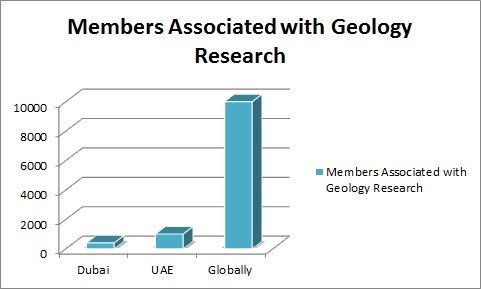
Figure 1: Statistical Analysis of Members Associated with Geology Research
Major Geological Associations in UAE
Statistical Analysis of Associations
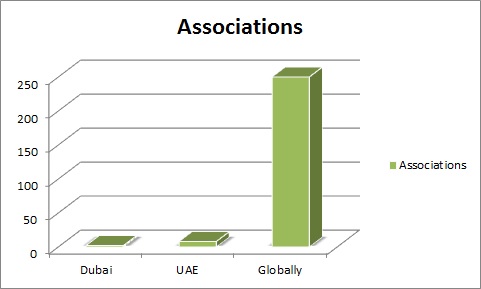
Figure 2: Statistical Analysis of Associations
Target Audience
Academic scientists, geologists, young researcher, Professors, Research Scientists and Students of different Universities containing Geological studies, eminent persons of different Geological Association and Societies. Directors, CEOs, Managers of different companies related to geology from all over the world.
% of Target Audience:
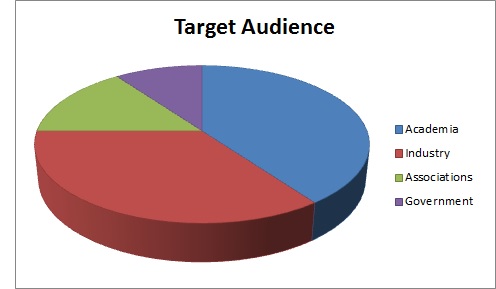
Figure 3: Target Audience from all over the globe
Top Universities in UAE
Statistical Analysis of Universities associated with Geology
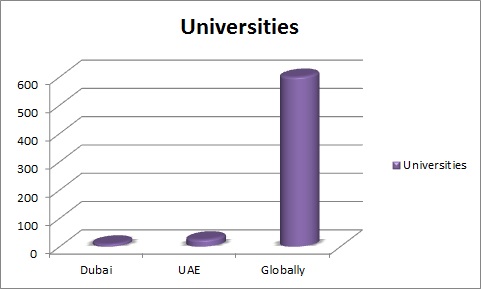
Figure 4: Statistics of Geological Universities globally
Companies associated with Geology in Dubai
Companies associated with Geology in UAE
Statistical Analysis of Companies associated with Geology
Companies and Industries associated to Geology are mining industries, oil and gas industries, coal industries and so on. Also many companies are there in UAE and in the globe which deals with Geological products. The Statistics of Industries present in Dubai, UAE and in International level is given below.
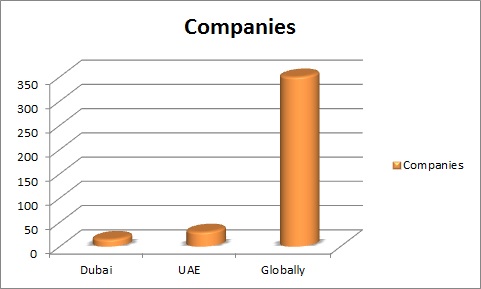
Figure 5: Statistics of companies present in Dubai, UAE and globally
Market analysis of Oil and Gas in the UAE
The UAE holds nearly 10 per cent of the world’s total reserves, and there is no doubt that oil will continue to provide the income for both economic growth and the expansion of social services for several more decades at least. In the coming years, natural gas will play an increasingly important role in the UAE’s development – particularly as a fuel source for power generation, petrochemicals and manufacturing industry. In a matter of a few decades, Abu Dhabi, supported by Dubai, turned the UAE into one of the major players in the international oil export industry. Proven recoverable oil reserves in 2000 were put at 98.8 billion barrels. At the same time, proven recoverable reserves of natural gas in the UAE were estimated in 2000 at 6 trillion cubic metres, or 4 per cent of the world total. This makes the UAE’s gas reserves the third largest in the Middle East (after Iran and Qatar) and the fourth largest in the world with Russia holding the biggest reserve. The major player in Dubai oil is the Dubai Petroleum Company (DPC) which is a wholly-owned subsidiary of Conoco of the US. In Dubai Gas Demand rising day by day, the Dubai Aluminium Company is having its US $736 million Condor expansion project, making Dubai the second largest smelter in the world and the largest in the Middle East.
The UAE has the fourth highest level of oil and gas reserves globally per capita, at albout 15,000 barrels of oil equivalent. About 94% of the UAE’s crude oil reserves are located in the Emirate of Abu Dhabi and Abu Dhabi marine operating company which is an affiliate of ADNOC has begun initial production from the offshore Umm Lulu oilfield in October 2014. By 2018, the oil field would add more than 100, 000 b/d of crude to the oil production capacity as per the EIU.
Oil and Gas Production in UAE
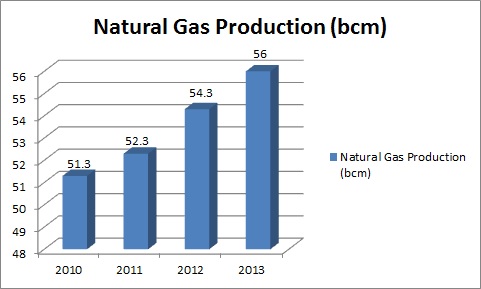
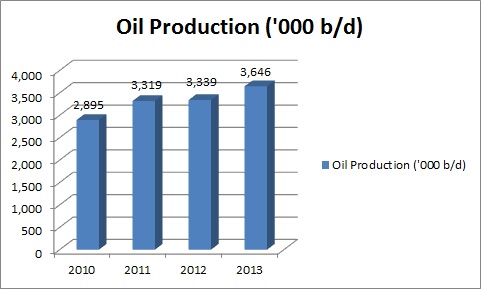
Funding Opportunities
According to MICAD (Ministry of International Cooperation and Development) total aid from the UAE granted to US$5.89 billion (Dh21.63 billion) in 2013. Much of this funding comes under the definition of Official Development Assistance (ODA) as required by the Development Assistance Committee of the Organisation for Economic Co-operation and Development (OECD DAC). According to the resource and environmental protection report the Governor’s budget for 2015-16 proposes a total of $9.3 billion in expenses from the General Fund, various special funds, bond funds, and federal funds for resources and environmental protection programs.
The topography of the Middle East, as it exists today is the result of a geodynamic system reflected in the creation of subduction zones in Oman, along the Persian/Arabian Gulf area, along the Syrian-Turkish borders, and along the eastern shore of the Mediterranean Sea. Net ODA in 2013 was estimated at US$5.42 billion, moving the UAE into first place globally in terms of development assistance as a percentage of gross national income (GNI). In other words, the UAE provided 1.33% of its GNI as ODA in 2013, exceeding the UN target of 0.7% for donor countries.
Some sectors are expanding on the grounds of the demands from the growing Middle Eastern population requiring improvements of healthcare, housing, construction and infrastructure. To achieve this, the government has put forward a USD 3.2 bn. growth stimulus package, financed by the USD 12 bn. aid received from UAE, Saudi-Arabia and Kuwait. According to the Oil & Gas Journal, Iraq held 144 billion barrels of proved crude oil reserves as of January 1, 2015, representing almost 18% of proved reserves in the Middle East and almost 9% of global reserves, ranking fifth in the world. Following a period of depreciation of the currency, the Central Bank of Egypt has increased the net international reserves, reaching USD 19 bn.
References:
http://www.gulfoilandgas.com/webpro1/prod1/suplista.asp?id=327&yx1=AE
https://www.moenr.gov.ae/en/about-ministry/united-arab-emirates.aspx#page=1
http://www.bankaudigroup.com/GroupWebsite/openAudiFile.aspx?id=2485
http://www.uaeinteract.com/government/development_aid.asp
Conference Highlights
- Petroleum Geology
- Environmental Geology
- Engineering Geology
- Geology and Mineral Resources
- Sedimentology and Coastal Process
- Structural Geology
- Mining Geology
- Geology and Civil Engineering
- Exploration Geophysics
- Geological Modelling
- Paleontology
- Geological Consulting
- Physical Geology
- Entrepreneurs Investment Meet
To share your views and research, please click here to register for the Conference.
To Collaborate Scientific Professionals around the World
| Conference Date | April 21-22, 2016 | ||
| Sponsors & Exhibitors |
|
||
| Speaker Opportunity Closed | Day 1 | Day 2 | |
| Poster Opportunity Closed | Click Here to View | ||
Useful Links
Special Issues
All accepted abstracts will be published in respective Our International Journals.
- Journal of Geology & Geophysics
- Journal of Remote Sensing & GIS
- Geoinformatics & Geostatistics: An Overview
Abstracts will be provided with Digital Object Identifier by













